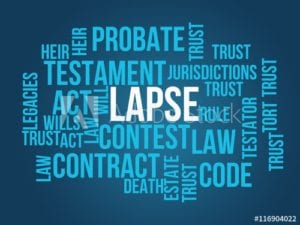Will Contest in Wake County, North Carolina

The Procedure to File a Will Contest in Wake County, North Carolina
By Douglas D. Noreen
With the continued relocation of parents and other retirees to the Raleigh area, there are becoming an increasing number of will contests being filed in Wake County. For out-of-state family members or other interested parties, or even those located close by, these are the procedural basics of how to file a will contest in the Raleigh and Wake County area. Generally the will can only be contested once it is probated with the Wake County Clerk of Court. However, there are some alternative and more complex solutions to contest a signed will that has not yet been filed with the Wake County Clerk of Court. As a general rule however, once it is filed at the courthouse in Raleigh, a will contest may be filed.
- How to File a Will Contest in Raleigh, North Carolina
In the legal world, when filing a will contest, the proceeding is called a “caveat.” Caveat is the legal term for filing a will contest. Filing a will contest is very different from the process to the filing of a lawsuit. A pleading must be filed with the Clerk of Court and a filing fee paid. Thereafter, the Clerk of Court must issue an “Estate Summons” that is required to be served on all parties. This is similar to the Summons issued in all other lawsuits, but because it is an Estate issue, the special Estate Summons must be used.
- Service on Parties in a Will Contest
Once the will contest is filed in Wake County and the summons has been issued, it is required that both the pleading and Estate Summons served on all interested parties. Although the term “interested parties” can at times be hard to deduce, it always includes all persons who would take should no will exist (i.e. the next of kin who would inherit by blood), and all heirs named in either the will being contested, or the will immediately prior to the one that is the subject of the will contest. This should capture all parties whose rights will be affected by the hearing. If there are others whose rights may be affected, they are likely interested parties and should be served as well. Our general policy is to be over inclusive in order to make sure no issues arise later.
- Alignment
Once all parties have been served, a hearing to align the parties needs to be set. A date is set with the Wake County Clerk of Court, and the party requesting the hearing needs to file a formal Notice of Hearing at the courthouse in Raleigh and serve a copy of the filed Notice of Hearing on all the parties who were served with the lawsuit. On the set date, all parties will need to appear at the courthouse in Raleigh and inform the Superior Court judge which side of the will contest they are on. Basically, all parties decide whether they are on the side of attacking the will, or whether they support the will as written. For any party who was served but does not appear at the alignment hearing, they are considered non-aligned, but are bound by the outcome of the will contest.
- Will Contest
Now that these procedural formalities have been completed, the will contest can proceed. The parties will need to gather evidence and present their case to the Wake County Superior Court for a judge and/or jury to decide the case.
Should you be interested in filing a will contest in Raleigh or Wake County and have any additional questions, please feel free to contact Douglas Noreen at dnoreen@hsfh.com or call 919-821-7700.






